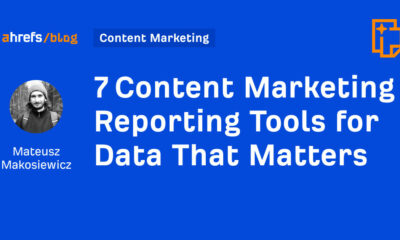TECHNOLOGY
How Big Data and Artificial Intelligence Can Create New Possibilities

By combining artificial intelligence (AI) and big data, organizations can see and predict upcoming trends in key sectors including business, technology, finance and healthcare.
AI is the simulation of human intelligence by computers. By applying machine learning algorithms, we can make ‘intelligent’ machines, which can employ cognitive reasoning to make decisions based on the data fed to them. Big Data, on the other hand, is a blanket term for computational strategies and techniques applied to large sets of data to mine information from them. Big data technology includes capturing and storing the data, and then analyzing data to make strategic decisions and improve business outcomes. Most companies deploy big data and AI in silos to structure their existing data sets and to develop machines which can think for themselves. But, big data is in reality the raw material for AI. So, when big data meets AI, they have the potential to transform both, the way data is structured and the way machines learn.
What is Artificial Intelligence and its Subets?

Artificial intelligence (AI) leverages computers and machines to mimic the problem-solving and decision-making capabilities of the human mind.
It is a constellation of many different technologies working together to enable machines to sense, comprehend, act, and learn with human-like levels of intelligence.
Here are the subsets of artificial intelligence:
- Machine Learning.
- Deep Learning.
- Natural Language processing.
- Expert System.
- Robotics.
- Machine Vision.
- Speech Recognition.
What is Big Data and Its 3Vs?
Big data is data that contains greater variety, arriving in increasing volumes and with more velocity.
Although the concept of big data itself is relatively new, the origins of large data sets go back to the 1960s and ‘70s when the world of data was just getting started with the first data centers and the development of the relational database.

Benefits of Big Data and Artificial Intelligence in the Digital Era
Corporations analyze and manage extensive data sets every day. Client information, employee details, business statistics, all put together, can be a huge collection of unstructured data that can be sorted and studied for business optimization. Big data provides solutions to collect and store data in a robust manner, while AI, with its machine learning techniques, learns from the data sets to make better decisions in the future.
Here are the benefits of big data:

-
Big data cuts business costs.
-
Big data increases efficiency.
-
Big data improves pricing.
-
Big data provides more tools to compete with big businesses.
-
Big data allows organizations to focus on local preferences.
-
Big data helps increase sales and loyalty.
-
Big data ensures you hire the right employees.
The retail brand Walmart is already using big data with AI to revise their business structure. With over millions of customers accessing their online and offline stores every single day, Walmart collects customer data in the range of petabytes. Big data analysts work on the vast data set, helping their machine learning algorithms master the decision-making skills. Studying the trending products on the site, patterns in customer buying habits, and relations between the demand and supply of goods, helped Walmart remodel its website and inventory to suit the needs of their customers, thus boosting their business.
AI algorithms usually work on sample data sets to in the machine’s initial stages of learning. However, clubbing the algorithms with live data allows machines to learn from actual data sets rather than sample ones. Thus, we can efficiently train our machines to make better decisions right from the learning stage.
An excellent example of this comes from the meteorology department. Servers in weather observatories receive data in the form of text, images, and videos from satellites, weather stations, and relay boards from all over the world. Big data coupled with AI is used in these domains to efficiently store the data and then work on it using image and video processing techniques for weather predictions.
Here are the benefits of artificial intelligence:

1) Less Human Errors: There is less room for error with artificial intelligence.
2) Doing More Complex Tasks: Artificial intelligence can perform a more laborious task with extra hard work and with greater responsibility.
3) Available 24/7: Educational Institutes and Helpline centers are getting many queries and issues which can be handled effectively using AI.
4) Providing Digital Assistance: Virtual assistants inside smartphones, PCs, or connected home speakers, like Apple’s Siri, Microsoft’s Cortana, Google’s Google Now, Samsung’s Galaxy S8’s Bixby and Amazon’s Alexa, provide contextual information.
5) Assisting Humans in Repetitive Tasks: In banks, we often see many verifications of documents to get a loan which is a repetitive task for the owner of the bank. Using AI Cognitive Automation the owner can speed up the process of verifying the documents by which both the customers and the owner will be benefited.
6) More Productive: Emotions are not associated with artificial intelligence robots and therefore the mood doesn’t hamper the efficiency. Thus they are always productive.
7) Educating The Next Generation: Nowadays, medical professionals are trained with artificial surgery simulators. It uses applications which help in detecting and monitoring neurological disorders and stimulate the brain functions.
8) Right Decision Making: The integration of AI tools in the business world has improved the efficiency of organizations.
Although computers cannot match human brains on a cognitive level, they are essential to sort and organize the vast data sets we deal with in the modern world. By merging AI and big data, we can obtain a structured real-time database, which can further be used in a variety of applications. Though the merger of these two domains is still in progress, we can expect rapid breakthroughs in the way we handle extensive data sets in businesses and in everyday lives.
Source link
TECHNOLOGY
Next-gen chips, Amazon Q, and speedy S3

AWS re:Invent, which has been taking place from November 27 and runs to December 1, has had its usual plethora of announcements: a total of 21 at time of print.
Perhaps not surprisingly, given the huge potential impact of generative AI – ChatGPT officially turns one year old today – a lot of focus has been on the AI side for AWS’ announcements, including a major partnership inked with NVIDIA across infrastructure, software, and services.
Yet there has been plenty more announced at the Las Vegas jamboree besides. Here, CloudTech rounds up the best of the rest:
Next-generation chips
This was the other major AI-focused announcement at re:Invent: the launch of two new chips, AWS Graviton4 and AWS Trainium2, for training and running AI and machine learning (ML) models, among other customer workloads. Graviton4 shapes up against its predecessor with 30% better compute performance, 50% more cores and 75% more memory bandwidth, while Trainium2 delivers up to four times faster training than before and will be able to be deployed in EC2 UltraClusters of up to 100,000 chips.
The EC2 UltraClusters are designed to ‘deliver the highest performance, most energy efficient AI model training infrastructure in the cloud’, as AWS puts it. With it, customers will be able to train large language models in ‘a fraction of the time’, as well as double energy efficiency.
As ever, AWS offers customers who are already utilising these tools. Databricks, Epic and SAP are among the companies cited as using the new AWS-designed chips.
Zero-ETL integrations
AWS announced new Amazon Aurora PostgreSQL, Amazon DynamoDB, and Amazon Relational Database Services (Amazon RDS) for MySQL integrations with Amazon Redshift, AWS’ cloud data warehouse. The zero-ETL integrations – eliminating the need to build ETL (extract, transform, load) data pipelines – make it easier to connect and analyse transactional data across various relational and non-relational databases in Amazon Redshift.
A simple example of how zero-ETL functions can be seen is in a hypothetical company which stores transactional data – time of transaction, items bought, where the transaction occurred – in a relational database, but use another analytics tool to analyse data in a non-relational database. To connect it all up, companies would previously have to construct ETL data pipelines which are a time and money sink.
The latest integrations “build on AWS’s zero-ETL foundation… so customers can quickly and easily connect all of their data, no matter where it lives,” the company said.
Amazon S3 Express One Zone
AWS announced the general availability of Amazon S3 Express One Zone, a new storage class purpose-built for customers’ most frequently-accessed data. Data access speed is up to 10 times faster and request costs up to 50% lower than standard S3. Companies can also opt to collocate their Amazon S3 Express One Zone data in the same availability zone as their compute resources.
Companies and partners who are using Amazon S3 Express One Zone include ChaosSearch, Cloudera, and Pinterest.
Amazon Q
A new product, and an interesting pivot, again with generative AI at its core. Amazon Q was announced as a ‘new type of generative AI-powered assistant’ which can be tailored to a customer’s business. “Customers can get fast, relevant answers to pressing questions, generate content, and take actions – all informed by a customer’s information repositories, code, and enterprise systems,” AWS added. The service also can assist companies building on AWS, as well as companies using AWS applications for business intelligence, contact centres, and supply chain management.
Customers cited as early adopters include Accenture, BMW and Wunderkind.
Want to learn more about cybersecurity and the cloud from industry leaders? Check out Cyber Security & Cloud Expo taking place in Amsterdam, California, and London. Explore other upcoming enterprise technology events and webinars powered by TechForge here.
TECHNOLOGY
HCLTech and Cisco create collaborative hybrid workplaces

Digital comms specialist Cisco and global tech firm HCLTech have teamed up to launch Meeting-Rooms-as-a-Service (MRaaS).
Available on a subscription model, this solution modernises legacy meeting rooms and enables users to join meetings from any meeting solution provider using Webex devices.
The MRaaS solution helps enterprises simplify the design, implementation and maintenance of integrated meeting rooms, enabling seamless collaboration for their globally distributed hybrid workforces.
Rakshit Ghura, senior VP and Global head of digital workplace services, HCLTech, said: “MRaaS combines our consulting and managed services expertise with Cisco’s proficiency in Webex devices to change the way employees conceptualise, organise and interact in a collaborative environment for a modern hybrid work model.
“The common vision of our partnership is to elevate the collaboration experience at work and drive productivity through modern meeting rooms.”
Alexandra Zagury, VP of partner managed and as-a-Service Sales at Cisco, said: “Our partnership with HCLTech helps our clients transform their offices through cost-effective managed services that support the ongoing evolution of workspaces.
“As we reimagine the modern office, we are making it easier to support collaboration and productivity among workers, whether they are in the office or elsewhere.”
Cisco’s Webex collaboration devices harness the power of artificial intelligence to offer intuitive, seamless collaboration experiences, enabling meeting rooms with smart features such as meeting zones, intelligent people framing, optimised attendee audio and background noise removal, among others.
Want to learn more about cybersecurity and the cloud from industry leaders? Check out Cyber Security & Cloud Expo taking place in Amsterdam, California, and London. Explore other upcoming enterprise technology events and webinars powered by TechForge here.
TECHNOLOGY
Canonical releases low-touch private cloud MicroCloud

Canonical has announced the general availability of MicroCloud, a low-touch, open source cloud solution. MicroCloud is part of Canonical’s growing cloud infrastructure portfolio.
It is purpose-built for scalable clusters and edge deployments for all types of enterprises. It is designed with simplicity, security and automation in mind, minimising the time and effort to both deploy and maintain it. Conveniently, enterprise support for MicroCloud is offered as part of Canonical’s Ubuntu Pro subscription, with several support tiers available, and priced per node.
MicroClouds are optimised for repeatable and reliable remote deployments. A single command initiates the orchestration and clustering of various components with minimal involvement by the user, resulting in a fully functional cloud within minutes. This simplified deployment process significantly reduces the barrier to entry, putting a production-grade cloud at everyone’s fingertips.
Juan Manuel Ventura, head of architectures & technologies at Spindox, said: “Cloud computing is not only about technology, it’s the beating heart of any modern industrial transformation, driving agility and innovation. Our mission is to provide our customers with the most effective ways to innovate and bring value; having a complexity-free cloud infrastructure is one important piece of that puzzle. With MicroCloud, the focus shifts away from struggling with cloud operations to solving real business challenges” says
In addition to seamless deployment, MicroCloud prioritises security and ease of maintenance. All MicroCloud components are built with strict confinement for increased security, with over-the-air transactional updates that preserve data and roll back on errors automatically. Upgrades to newer versions are handled automatically and without downtime, with the mechanisms to hold or schedule them as needed.
With this approach, MicroCloud caters to both on-premise clouds but also edge deployments at remote locations, allowing organisations to use the same infrastructure primitives and services wherever they are needed. It is suitable for business-in-branch office locations or industrial use inside a factory, as well as distributed locations where the focus is on replicability and unattended operations.
Cedric Gegout, VP of product at Canonical, said: “As data becomes more distributed, the infrastructure has to follow. Cloud computing is now distributed, spanning across data centres, far and near edge computing appliances. MicroCloud is our answer to that.
“By packaging known infrastructure primitives in a portable and unattended way, we are delivering a simpler, more prescriptive cloud experience that makes zero-ops a reality for many Industries.“
MicroCloud’s lightweight architecture makes it usable on both commodity and high-end hardware, with several ways to further reduce its footprint depending on your workload needs. In addition to the standard Ubuntu Server or Desktop, MicroClouds can be run on Ubuntu Core – a lightweight OS optimised for the edge. With Ubuntu Core, MicroClouds are a perfect solution for far-edge locations with limited computing capabilities. Users can choose to run their workloads using Kubernetes or via system containers. System containers based on LXD behave similarly to traditional VMs but consume fewer resources while providing bare-metal performance.
Coupled with Canonical’s Ubuntu Pro + Support subscription, MicroCloud users can benefit from an enterprise-grade open source cloud solution that is fully supported and with better economics. An Ubuntu Pro subscription offers security maintenance for the broadest collection of open-source software available from a single vendor today. It covers over 30k packages with a consistent security maintenance commitment, and additional features such as kernel livepatch, systems management at scale, certified compliance and hardening profiles enabling easy adoption for enterprises. With per-node pricing and no hidden fees, customers can rest assured that their environment is secure and supported without the expensive price tag typically associated with cloud solutions.
Want to learn more about cybersecurity and the cloud from industry leaders? Check out Cyber Security & Cloud Expo taking place in Amsterdam, California, and London. Explore other upcoming enterprise technology events and webinars powered by TechForge here.
-

 PPC7 days ago
PPC7 days ago4 New Google Ads Performance Max Updates: What You Need to Know
-

 PPC4 days ago
PPC4 days ago19 Best SEO Tools in 2024 (For Every Use Case)
-
SEARCHENGINES6 days ago
Daily Search Forum Recap: April 16, 2024
-

 MARKETING6 days ago
MARKETING6 days agoWill Google Buy HubSpot? | Content Marketing Institute
-

 SEO6 days ago
SEO6 days agoGoogle Clarifies Vacation Rental Structured Data
-

 PPC7 days ago
PPC7 days agoShare Of Voice: Why Is It Important?
-

 MARKETING5 days ago
MARKETING5 days agoStreamlining Processes for Increased Efficiency and Results
-

 PPC7 days ago
PPC7 days agoHow to Collect & Use Customer Data the Right (& Ethical) Way









![How to Create One in 2024 [+ Examples] How to Create One in 2024 [+ Examples]](https://articles.entireweb.com/wp-content/uploads/2024/03/How-to-Create-One-in-2024-Examples.jpgkeepProtocol-400x240.jpeg)
![How to Create One in 2024 [+ Examples] How to Create One in 2024 [+ Examples]](https://articles.entireweb.com/wp-content/uploads/2024/03/How-to-Create-One-in-2024-Examples.jpgkeepProtocol-80x80.jpeg)

You must be logged in to post a comment Login